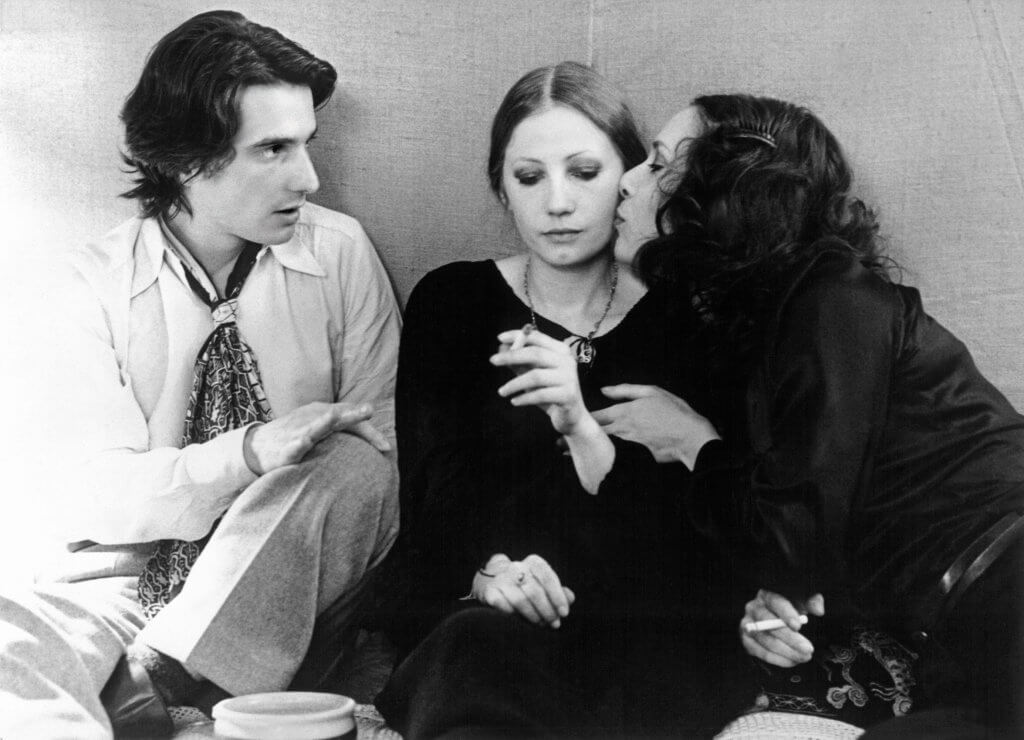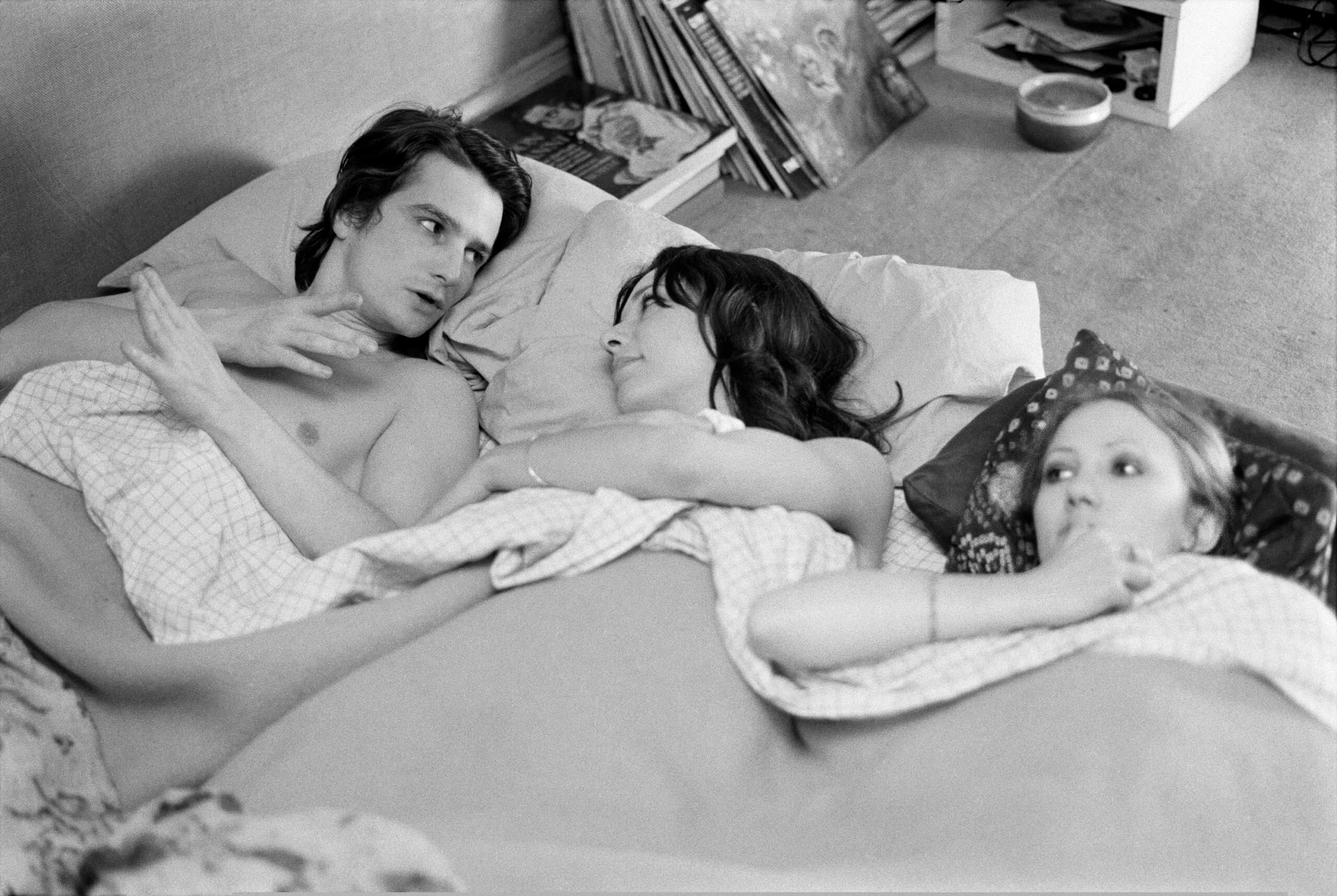La Maman et la Putain is a four-hour movie about a three-person partnership. Written and directed by Jean Eustache, this film offers a personal, and at times voyeuristic, view of love. It takes what we know about relationships, connections, and passions then stretches our understanding until the concepts are utterly foreign. Eustache was careful to pull from romantic tribulations of his own life: his recent breakup with Françoise Lebrun, his entanglement with Catherine Garnier, and his deep love for Marina Matuszewski all serve as cornerstones of the film. Indeed the main character, Alexandre (played expertly by Jean-Pierre Léaud), is little more than Eustache playing dress up. Alexandre oscillates between figures taken straight from Eustache’s own torrid love life, with frenzy and glee. He is all that the director hopes to become, a perfect version of himself created for our viewing pleasure.

La Maman et la Putain was awarded the Cannes grand jury prize in 1973. This decision was met with conflicting reception. Critic Gilles Jacob told Jean Eustache to his face that “[he thought] it was a shitty film. [He thought] it was a non-film, filmed by a non-filmmaker and acted by a non-actor.” Meanwhile Eric Neuhoff wrote that “this long romance of a poor young man, this black and white chamber music is a work apart, a great dark, talkative, alcoholic film.” Notoriety only increased following the suicide of costume designer Catherine Garnier of whom the films romantic affairs was loosely based on.
There are no dull moments in La Maman et la Putain. The runtime, while intimidating by today’s standards, does little to reflect the way time passes while enduring the film. Jean-Pierre Léaud, Bernadette, and Françoise Lebrun are electric together. Every glance is laden with admiration and sorrow, every movement is riddled with intent. The three of them are all broken in their own special way, each one hoping that the other holds the answers necessary to put the pieces together again.

In my opinion La Maman et la Putain represents the concept of “art for the sake of oneself.” Jean Eustache has presented an exploration of his inner psyche from which we are invited to form our own opinions. The film does not care if you love it or hate it. Midway through my viewing experience, I made the revelation that I was bearing witness to someone else’s perception of reality. I had entered a way of existence and understanding that was utterly foreign from my own. And is that not what cinema is all about? La Maman et la Putain is a delight if you allow it to be. Like meeting a new friend for coffee, it is best to not let first impressions be a deciding factor. Instead, sit with the film and give it time to be vulnerable. Jean Eustache has immortalized his thoughts into a four hour plethora of moving images. Enter his mind, if only for a moment.
